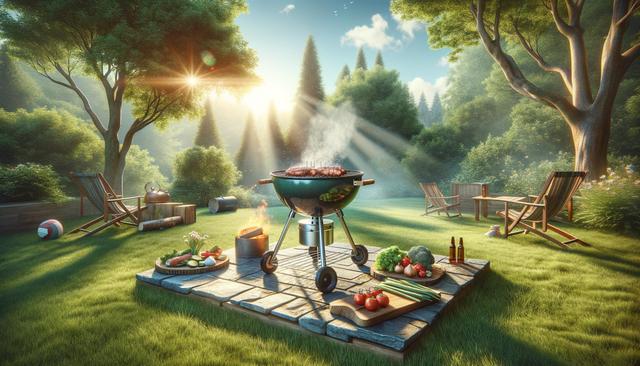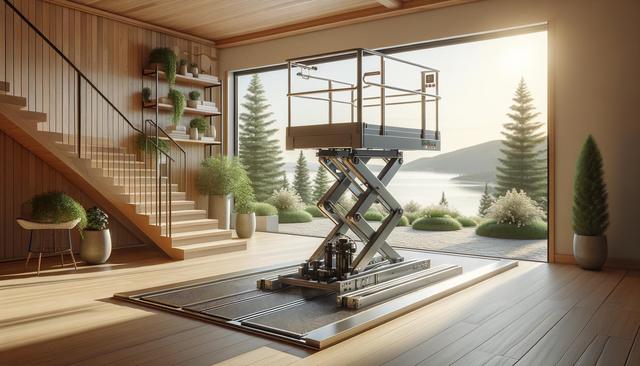Choosing the Right Type of Outdoor Grill
Outdoor grilling starts with selecting the right type of grill for your space, cooking preferences, and budget. The main types include charcoal, gas, electric, and pellet grills. Each type has its pros and cons, so understanding them can help you make an informed choice. Charcoal grills offer a classic smoky flavor and are often favored for traditional barbecue. Gas grills are popular for their convenience and quick heat-up time, while electric grills are a suitable option for areas with restrictions on open flames. Pellet grills, which use compressed wood pellets, offer a blend of flavor and ease of use. When choosing a grill, consider:
- Available outdoor space
- Fuel source preference (gas, charcoal, electric, or pellet)
- Frequency of use
- Portability if you plan to move it often
- Budget and maintenance requirements
Matching your grill to your lifestyle ensures you’ll enjoy the experience every time you cook outdoors.
Essential Grill Features and Accessories
Modern outdoor grills come with a variety of features designed to enhance performance and user experience. While some features might be optional, others can significantly improve usability. Look for features like:
- Built-in thermometers for accurate temperature control
- Side burners for cooking side dishes simultaneously
- Grease management systems for easier cleanup
- Multiple burners for better heat distribution
- Storage shelves or cabinets for utensils and fuel
In addition to built-in features, there are accessories that can elevate your grilling game. Grill covers protect your equipment from the elements, while tools like tongs, spatulas, and grill brushes are essential for safe and effective cooking. For those who like to experiment, smoker boxes, rotisserie kits, and pizza stones can open up new culinary possibilities. Investing in the right accessories can make your outdoor cooking sessions smoother and more enjoyable.
Fuel Considerations and Safety Tips
Each type of grill fuel comes with its own set of considerations. Charcoal grills require more time to heat up and need proper ash disposal, while gas grills need propane or natural gas hook-ups and regular inspection of hoses and valves. Electric grills need access to electricity and are ideal for smaller patios or balconies. Pellet grills need a steady supply of wood pellets and an electric power source to operate the auger and control systems.
Safety should always be a top priority. Follow these guidelines to keep your grilling experience safe:
- Keep your grill at least ten feet away from any structures
- Never leave a lit grill unattended
- Clean your grill regularly to prevent grease fires
- Check for gas leaks before each use
- Keep a fire extinguisher nearby
Being aware of your grill’s fuel needs and following safety practices helps ensure that every cookout goes off without a hitch.
Maintenance and Cleaning Best Practices
Proper maintenance prolongs the life of your outdoor grill and ensures it performs at its peak. After each use, brush the grates with a grill brush to remove food particles. For gas grills, it’s important to check the burners and ports regularly to prevent clogs. Deep cleaning should be done at least once a season, which includes removing and soaking the grates, emptying the grease tray, and cleaning the interior surfaces.
Here are some maintenance tips to keep your grill in top condition:
- Cover your grill when not in use to protect it from weather damage
- Check for rust and repaint or replace affected areas as needed
- Inspect and replace worn-out parts like igniters or burners
- Use a mild detergent and warm water for cleaning surfaces
- Store fuel properly, especially charcoal or propane tanks
Routine maintenance not only keeps your grill safe but also enhances the flavor of your food by preventing old residues from affecting your meal.
Cooking Tips for Outdoor Grilling Success
Grilling is part art, part science. To get the most out of your outdoor grill, it’s important to understand cooking techniques and temperature control. For instance, searing meats at high temperatures helps lock in juices, while indirect cooking is ideal for larger cuts that need more time. Using a meat thermometer can help ensure your food is cooked to the right doneness without guesswork.
Here are a few grill cooking tips to enhance your results:
- Preheat your grill for at least 10-15 minutes before cooking
- Keep the lid closed as much as possible to maintain consistent heat
- Use marinades or dry rubs to enhance flavor
- Let meats rest after grilling to retain juices
- Experiment with different woods for smoking to add unique flavors
By mastering these techniques, you can create a wide range of delicious meals, from juicy steaks and burgers to grilled vegetables and seafood.




Leave a Reply